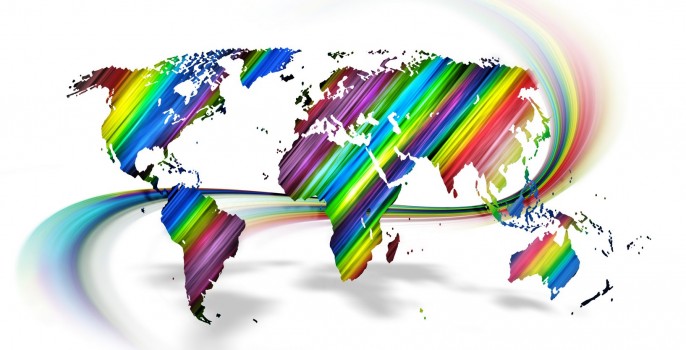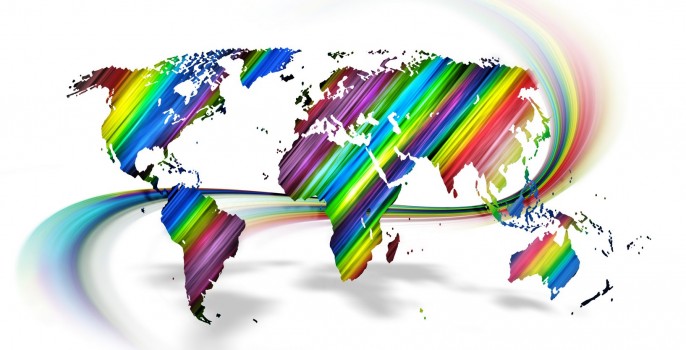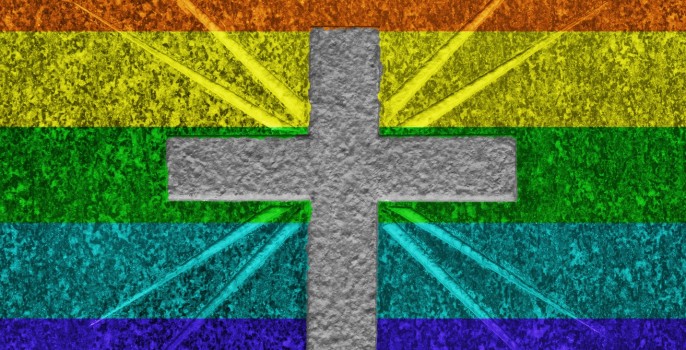Trinidad and Tobago was the subject of a new study, launched especially on the eve of International Day Against Homophobia & Transphobia, which found that a majority of the country’s people (57%) were either tolerant or accepting of LGBT people. The study not only stole the limelight for the Day’s commemorations, it gained top quality media coverage on the Day in general.
The study also found that LGBT issues are not as dangerous as national politicians may imagine. It was funded by the British High Commission and conducted by the Barbados-based Caribbean Development Research Services Inc (CADRES), of attitudes toward homosexuals in T&T. The results were announced at a press conference at the All Saints Anglican Church, Port-of-Spain, by CADRES director Peter Wickham.

As one local activist summarised to the IDAHO Committee: “Instead of celebrating the Caribbean’s homophobia on IDAHO, in Trinidad & Tobago we marked the occasion by inviting labour, religious and rights leaders and the media to take note of the significance of new research that shows low levels of homophobia, and called for politicians to catch up. All three daily newspapers covered it today, and the most watched TV evening news broadcast made it their lead story.”
You can see CCN TV6 coverage here:
Guardian Media Ltd also gave positive coverage to the study’s findings. As did Trinidad Express Newspapers, and Trinidad & Tobago’s Newsday.
A Discussion Panel on Survey Findings Also Marked the Day:
WHAT: Pollster, expert panel discuss new Trinidad & Tobago survey data on public attitudes to homosexuality, to mark International Day Against Homophobia
WHEN: Thursday May 16, 2013 • 12:45 pm to 2:00 pm
WHERE: All Saints Anglican Church Parish Hall, corner Marli & Woodford Streets, Newtown
WHO: Peter Wickham: principal, CADRES, leading regional political and social research organisation, with extensive Caribbean-wide experience
Colin Robinson: executive director, CAISO, lead Trinidad &Tobago NGO engaged in nationbuilding advocacy for sexual citizenship and gender justice; secretary, CariFLAGS, regional LGBT advocacy network headquartered in T&T
Pandita Indrani Rampersad: Trinidad & Tobago’s first woman priest; founding president, Hindu Women’s Organization
Nikki Johnson: education & research officer, Oilfield Workers Trade Union
Lynette Seebaran-Suite: attorney at law; chair, ASPIRE, advocacy NGO for sexual & reproductive health & rights, including gender-based violence
Josh Drayton: lecturer on political science, University of the West Indies-St. Augustine
Moderator – Cedriann Martin: journalist; communications officer, UNAIDS Caribbean Regional Support Team
WHY: Commonwealth Caribbean states trail the entire hemisphere in recognition of the rights and dignity of LGBT citizens. Caribbean politicians often cite the “lack of a political mandate” or blame public attitudes for their failure to fulfil their duty to protect lesbian, gay, bisexual and transgender (LGBT) citizens. In Trinidad & Tobago, there is no political leadership for respect for the equality and dignity of these minorities, and increasingly open advocacy by Roman Catholic and evangelical Christian leaders to deny persons equality and human rights based on their sexual orientation or gender.
A professional survey by one of the region’s most respected research organisations shows that almost twice as many Trinbagonians are tolerant or accepting of homosexuals as could be described as “homophobic”. The survey demonstrates clearly that Trinbagonians disapprove of violence against minorities and discrimination in all its manifestations, and largely consider discrimination against homosexuals to be “wrong”. Notwithstanding the largely positive stance, it is also clear that fundamental misunderstandings exist among Trinbagonians regarding several basic facts about homosexuality, which may impact negatively on attitudes.
The survey also demonstrates that Trinbagonians would support changes in the legislative framework that relates to homosexuality if they were convinced the laws contribute to spread of HIV or impact negatively on the physical or psychological well-being of young people or adults. There is no evidence from the survey of a significant potential political cost at the national level in terms of party support if there were a change in laws.
Trinidad & Tobago commemorates the May 17 International Day Against Homophobia and Transphobia for the third year in 2013, marking the date of the declassification of homosexuality as a mental illness by the World Health Organization 23 years ago. IDAHO-T is now marked around the globe by the United Nations, national and local governments, NGOs and the media, through political declarations and educational, advocacy and alliance-building activities. It is a global collaboration to take local action to engage with the violence, stigma, unequal treatment and criminalization that rob LGBT people of life, safety, human dignity and opportunity, and which harms national productivity and heterosexual boys in particular in the Caribbean. This year’s celebration draws attention to innovative activities in Nairobi, Bangkok, Botswana, Buenos Aires, Hong Kong, The Hague, Egypt, Georgia, Turkey and Beijing. Elsewhere in the Caribbean, where it is being marked for the eighth year, interventions will happen in Cuba, Guyana, Haiti, Jamaica and the Dominican Republic.



